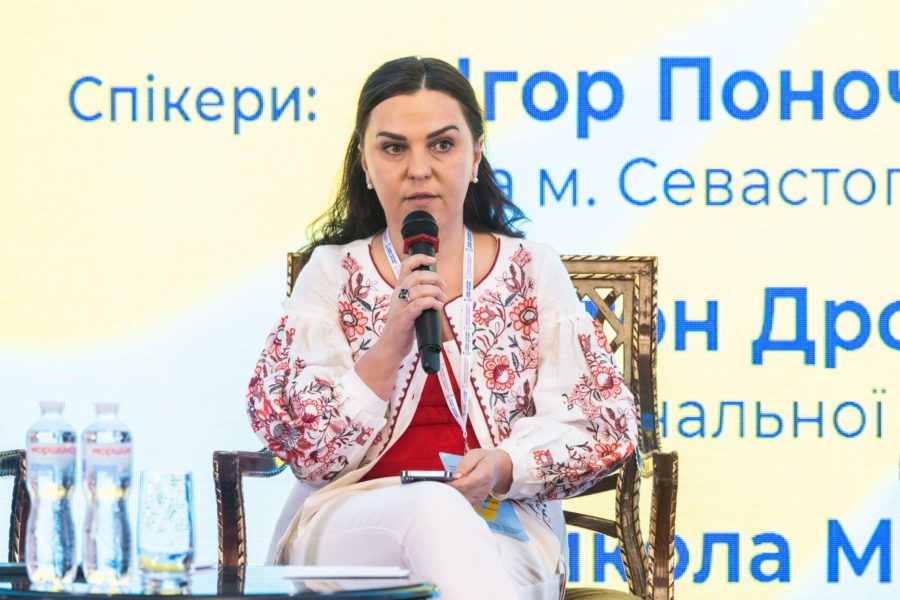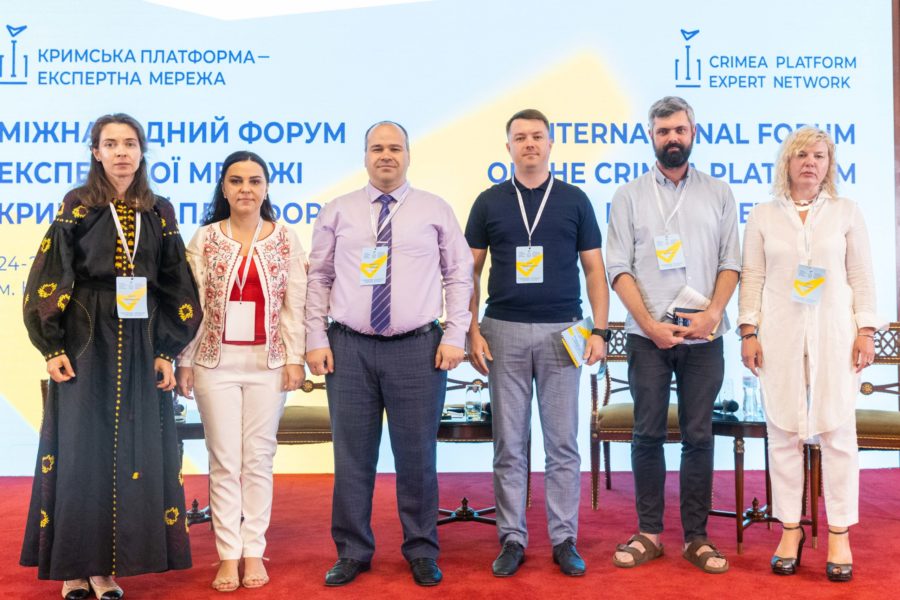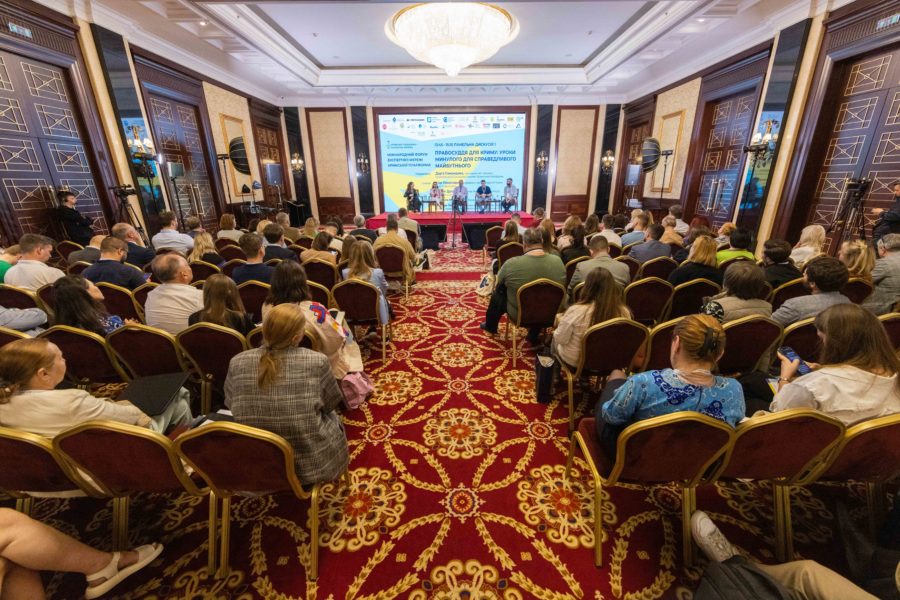In occupied Crimea, the number of charges of high treason or cooperation with a foreign state has increased – Tetiana Pechonchyk
After the start of the full-scale war in occupied Crimea, the number of charges of high treason or cooperation with a foreign state under Article 275.1 of the Criminal Code of the Russian Federation has increased. Currently, human rights defenders have recorded eight such cases, while before 2021 there were none at all.
 Tetiana Pechonchyk
Tetiana PechonchykThis was reported by the head of Human Rights Centre ZMINA Tetiana Pechonchyk on June 24 during the International Forum of the Crimean Platform Expert Network.
Pechonchyk said that during the first years of the occupation of Crimea, political prisoners of the Russian regime started to appear there:
“However, in order to claim politically motivated persecution, we had to base our allegations on facts and provide evidence for international organisations that neither then nor now have access to the territory of occupied Crimea. In fact, human rights organisations were the only ones who could work on the territory of the Crimean peninsula but with great risks. In 2016-2017, we decided to collect a set of evidence from the occupation courts on how the right to a fair trial was being violated”.
The human rights defender noted that no one had done anything like this before under the occupation, so it was necessary to develop a methodology for assessing the exercise of the right to a fair trial under occupation. At that time, a group of experts from Ukraine and Moldova was created to develop a unique methodology.
“In our methodology, we relied on international standards of the right to a fair trial. In 2018, the first systematic analysis of the observance of the right to a fair trial in politically motivated cases was published based on the results of this work”, says Tetiana Pechonchyk.

According to her, the study was based on 174 visits to the occupation courts and observations of what was happening in nine politically motivated cases. These were the cases of Volodymyr Balukh, Suleiman Kadyrov, Ihor Movenko, Mykola Semena, Ilmi Umerov, Akhtem Chyihoz, The case of February 26 and others.
In their work, human rights defenders tested the following hypothesis: the judicial system established under the occupation is unable to provide effective protection against unlawful prosecution in politically motivated trials, says Pechonchyk. She adds: This research was important because it showed, based on a carefully collected set of data, that there can be no fair trial in politically motivated cases in occupation courts.
Currently, the yellow level of terrorist threat has been introduced in Crimea, which is why most courts have banned people from attending “open” trials as part of “countering the terrorist threat”. In this way, one of the basic principles of a fair trial – the transparency of trials – is violated at the systemic level, the human rights defender says.
“The number of charges of high treason or collaboration with a foreign state has now increased. Since the beginning of 2024, the occupation courts have begun considering cases against eight residents, although there were no such cases at all before 2021, and in 2021 and 2022, one case was heard per year. In addition, Russia is trying Ukrainian soldiers for the mere fact of participating in hostilities, in violation of international humanitarian law”, continues the head of Human Rights Centre ZMINA.
At the same time, the so-called judicial system is also beginning to be created in the occupied parts of Kherson and Zaporizhzhia regions. Zmina.info has published several articles about this. You can read them here.

For reference. The International Forum of the Crimean Platform Expert Network is taking place in Kyiv on June 24-25. The main goal of the event is to discuss a wide range of problems caused by the occupation of Crimea and the Black and Azov Seas; to conduct a comprehensive assessment of the actions of the expert community, the state of Ukraine and partner countries; to formulate recommendations on the points of application of efforts and further actions to ensure the most efficient use of the resources of the expert community.
Among the participants of the event were representatives of the Crimean Platform Expert Network, independent experts, representatives of Ukrainian government agencies, international analytical centres, non-governmental organisations, representatives of the diplomatic community of the International Crimean Platform member states and the academic community.
If you have found a spelling error, please, notify us by selecting that text and pressing Ctrl+Enter.















